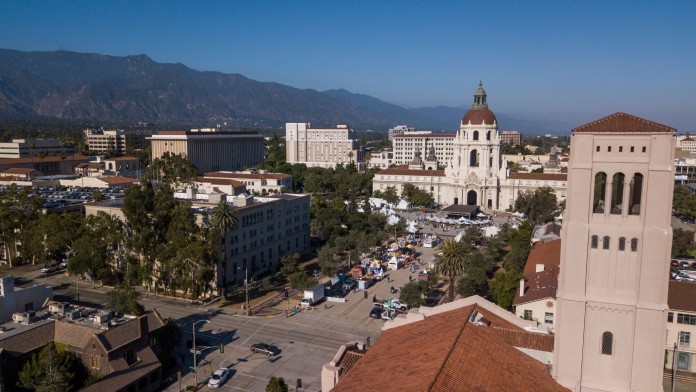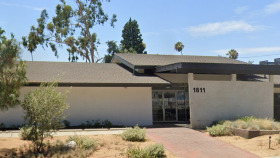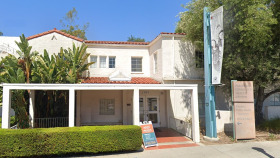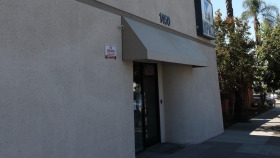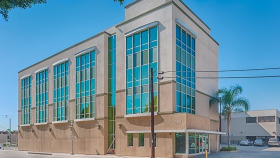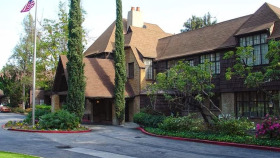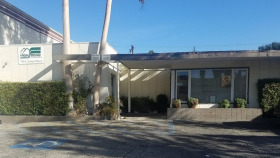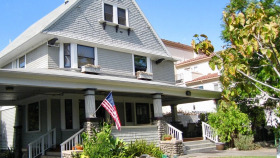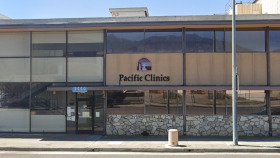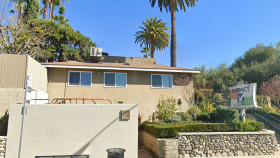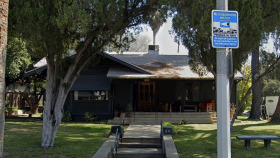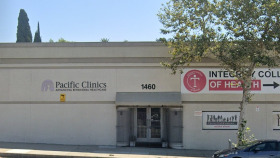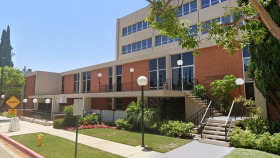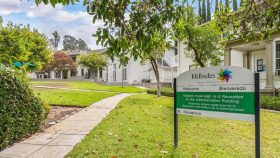Expert Insights
In 2022, alcohol-impaired crashes killed more than 1,100 people in California. Clearly, something needs to change. In Pasadena, local authorities are trying to curb these numbers with DUI checkpoints. These occur occasionally at undisclosed locations. The dates and times are announced to the public, but not the specific location within the Pasadena city limits. But is this enough? That’s doubtful. California drivers facing a first-time DUI charge receive an average of $13,500 in fines and a suspended license. If we really want to prevent DUI deaths in Pasadena, the consequences need to be steeper, and we need more than an occasional checkpoint. This is a good start, but authorities need to increase the stakes as well as educate residents about the risks, so drivers won’t even consider getting behind the wheel impaired.
~ Kerry Nenn
Paying for Drug Rehab in Pasadena
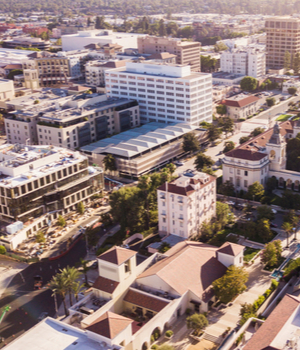 The cost of a drug or alcohol rehab should never keep someone from seeking out treatment for a substance use disorder. Pasadena offers several free options, including:
The cost of a drug or alcohol rehab should never keep someone from seeking out treatment for a substance use disorder. Pasadena offers several free options, including:
- State-funded: A state-funded facility receives money from the federal and state governments to provide low-cost or free care to Pasadena residents who meet income requirements. Methadone clinics can also fall under this category. Methadone is a medication used to treat opioid addiction.
- Grant-funded: The Substance Abuse and Mental Health Services Administration provides grant funding to drug and alcohol rehabs in Pasadena. This funding allows them to reduce costs or offer free addiction treatment.
- Scholarships: Some rehabs offer scholarships that pay for your treatment. You will likely have to fill out paperwork or a form to see if you qualify.
Some free drug rehabs in Pasadena and Los Angeles County include:
- The Salvation Army Adult Rehabilitation Center Residents – Pasadena
- Twin Town Treatment Centers
- Walter Hoving Home
Private Insurance, Medicare, and Medi-Cal
The majority of Pasadena drug rehabs accept private insurance. This can include Cigna, Anthem, Blue Cross Blue Shield, and United Healthcare, among others. By choosing a drug or alcohol rehab in Pasadena that accepts your insurance plan, you’ll be able to reduce your costs significantly. It’s also important to find out what types of addiction treatment your insurance will cover. You can call the number on the back of your insurance card to learn more.
Medi-Cal, California’s Medicaid program, and Medicare can also be used to cover substance use disorder treatment. Like private insurance, you’ll have to find a Pasadena drug rehab that accepts these forms of health insurance.
To qualify for Medi-Cal, you need to meet the following requirements:7
- Reduced income
- 65 or older
- Blind
- Disabled
- Pregnant
Medicare will also cover both inpatient and outpatient substance use disorder treatment, depending on your plan. To qualify, you must be:
- 65 or older
- Younger than 65 and disabled
- Younger than 65 and diagnosed with end-stage renal disease
For older adults with limited incomes, Medicaid may be able to supplement Medicare coverage and help with costs.
Alcohol and Drug Use Statistics in Pasadena
Let’s break down some of the statistics that show the impact of alcohol and drug use in Los Angeles County and Pasadena:2,3,4,5,6

In 2020, Los Angeles County had 2,425 accidental drug overdose deaths.

In 2020, there were 2,536 emergency department visits related to opioid overdose.

Annually in Los Angeles County, there are 23,973 DUI arrests.

From 2019 to 2020, 35,060 patients in Los Angeles County received substance use disorder treatment.
California Alcohol and Drug Laws
California law includes the following policies related to substance abuse:1,2,3,4,5
California Employee Protections for Drug or Alcohol Rehab: California’s labor code requires employers with 25 or more employees to provide accommodation for staff who voluntarily choose to attend alcohol or drug rehab. This may include unpaid time off or use of sick or vacation time. Employees who wish to request time off for addiction treatment may be able to request it under the Family and Medical Leave Act or the California Family Rights Act.
Substance Abuse and Crime Prevention Act: This act provides treatment opportunities for individuals who are convicted of non-violent crimes. Eligible offenders may serve their time in drug treatment rather than in prison.
California Government Prevention and Care Services: Senate Bill 110 expanded these services to include contingency management (an incentivized treatment program) as a benefit covered under Medi-Cal. Patients who demonstrate substance-free behavior, such as drug-free urine tests, are rewarded with vouchers or gift cards.
California Ethical Treatment for Persons with Substance Use Disorder Act: This bill protects residents undergoing addiction treatment by requiring alcohol and drug rehabs in California to adopt a client bill of rights that seeks to ensure every client is treated with dignity, honesty, and respect.
California’s Good Samaritan Law: This law encourages California residents to call 9-1-1 if an overdose is suspected. It protects individuals who seek emergency medical care for overdose from legal repercussions for possession of a controlled substance/drug paraphernalia or providing alcohol to minors.
Levels of Care for Substance Abuse
Multiple levels of care exist for alcohol and drug rehab in Pasadena. Some residents require all levels of care during their journey to recovery, while others receive only the less intensive options.
Medical Detox
Detoxification is the process of safely and comfortably removing drugs or alcohol from your system while in a supervised setting. You may choose a medical detox program to help manage painful withdrawal symptoms. This is, more often than not, the first step in the recovery process.
Inpatient Care
An inpatient setting involves living at an accredited facility 24/7 to receive treatment for addiction. This is also referred to as residential care. You’ll have access to services such as individual and group therapy, nutritional counseling, and medication administration.
Partial Hospitalization Programs (PHPs)
PHPs are a type of outpatient treatment that involves many of the same therapies and methods of inpatient care. But instead of living in a facility 24/7, you only visit during scheduled session times, then you can return home.
Intensive Outpatient Programs (IOPs)
A step down from PHPs, IOPs are a type of outpatient treatment that allows you to attend sessions for several hours a day, multiple days each week. However, you’ll spend the rest of your time at home, working, or fulfilling other obligations.
Standard Outpatient
Standard outpatient care is best for you if you are someone who is highly motivated and has a strong support system. This is the least intensive setting, as it involves just one or two hours of treatment per week.
Aftercare
Aftercare, or relapse prevention, is a form of continuing support after you complete your program. This may include 12-step groups, non-12-step groups like SMART Recovery, ongoing therapy, sober living homes, and more.
Traveling for Drug and Alcohol Rehab in Pasadena
Pasadena offers many amenities whether you’re traveling there for addiction treatment or if you will be visiting a friend or family member who is at a Pasadena drug or alcohol rehab.
Attractions: Located at the base of the San Gabriel Mountains, Pasadena offers a break from the urban hustle and bustle of nearby Los Angeles. However, the city doesn’t lack things to do with more than 600 restaurants, hotels, museums, educational opportunities, and more.
Pasadena is home to several art museums and public galleries, including the Pacific Asia Museum and the Norton Simon Museum. You can also catch a show at the historic Pasadena Playhouse.
However, Pasadena may be best known for the Tournament of Roses Parade, which is held each year around New Year’s Day. The Rose Parade, as it is familiarly known, traditionally features elaborate floats, bands, and equestrian units. The city is also the home of the Rose Bowl, a football stadium that opened back in 1922 and is recognized as a National Historic Landmark.
Transportation: It’s also easy to get around town. Pasadena is a very walkable community and features a streamlined transit system. Shuttles, buses, and light rail are available to take you throughout the city and nearby landmarks. Four regional airports service the Pasadena area daily. Hollywood Burbank Airport is the closest to Pasadena.
If you have responsibilities that will require you to be in Los Angeles, Pasadena makes a great home base. It offers fast, easy access to downtown LA as well as landmarks such as Hollywood, Beverly Hills, and nearby beaches.
Resources
- City of Pasadena. (2022). About Pasadena.
- City of Pasadena Public Health Department. (2019). Community Health Needs Assessment of Greater Pasadena.
- Los Angeles County Department of Public Health Substance Abuse Prevention and Control. (2022). Costs of Alcohol and Other Drug Abuse/Abuse.
- Los Angeles County Department of Public Health Substance Abuse Prevention and Control. (2021). Data Report: Accidental Drug Overdose Deaths in Los Angeles County During the COVID-19 Pandemic.
- California Department of Public Health. (2021). California Overdose Surveillance Dashboard.
- Los Angeles County Department of Public Health Substance Abuse Prevention and Control. (2021). Patients in Publicly Funded Substance Use Disorder Treatment Programs in Los Angeles County.
- State of California. (2022). Do You Qualify for Medi-Cal Benefits?

